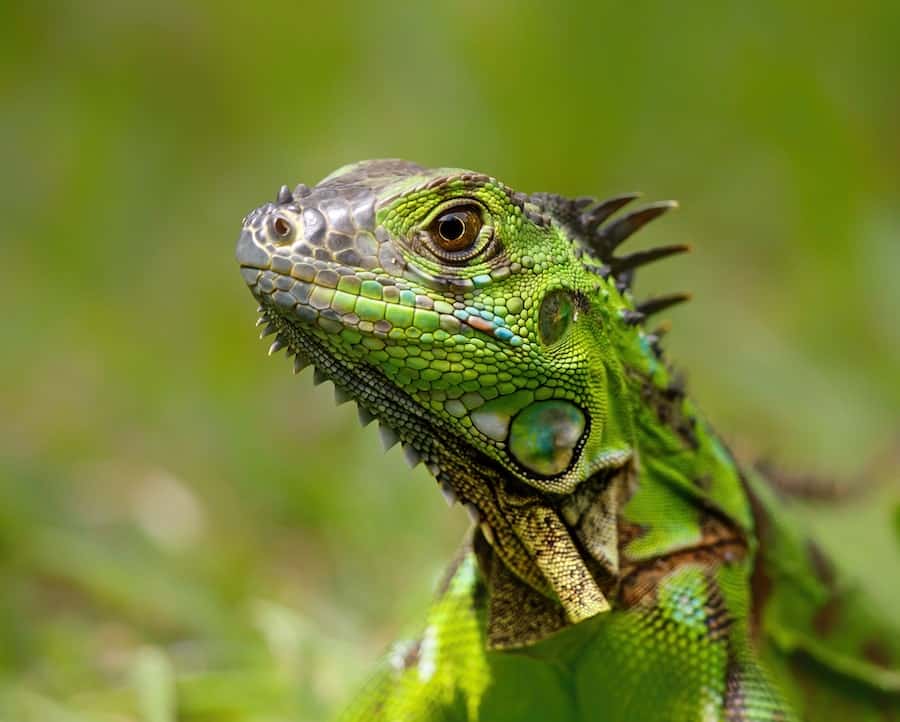Iguana ownership comes with many benefits, including their striking beauty and great companionship, but also unique drawbacks which you should consider before bringing one home.
If you’re considering adopting an iguana, here are some things you’ll want to know beforehand!
Pros of Owning an Iguana
1. Iguanas Are Interesting and Exciting Pets
Adventurous – Iguanas can be very adventurous, making for an exciting pet. Iguanas don’t move much, but when they do, they are known for their quick movements and agility, and can climb pretty much anywhere.
High Intelligence – They are also well-known for their intelligence and ability to communicate. Iguana owners claim that, if left to their own devices, iguanas will learn how to get their way, much how a child would.
Beautiful Markings and Personalities – Iguanas also have really cool markings that change with their moods. They can switch from bright green to dark brown, orange, blue or yellow! They’re definitely great pets for those who want an exotic pet.
Is this your first time adopting a reptile? Check out this post I wrote titled, “Are Iguanas Good Pets For Beginners.“
2. Iguanas Can Make Great House Pets
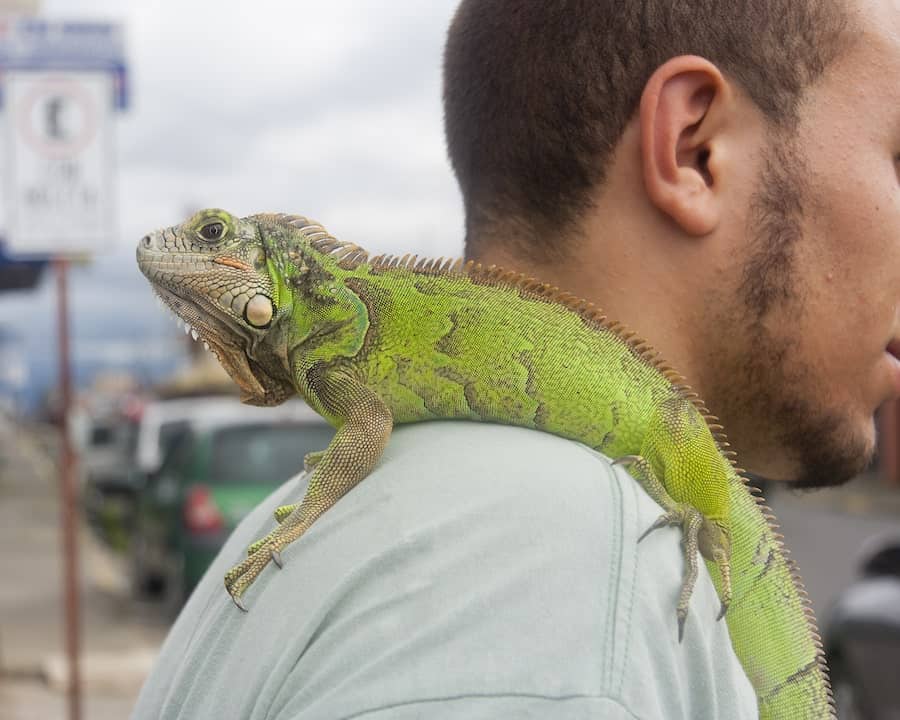
Long Lifespan – Iguanas have a long lifespan, sometimes living up to15-20 years, and some as long as 30 years in captivity. Therefore, if you do adopt an iguana, know its going to essentially be a life partner.
Low Engagement Levels – With regard to routine, up-keeping, and playtime, iguanas require relatively low activity levels.
They do not need to be taken for walks or picked up often. Therefore, iguanas can be an ideal pet for those with a busy lifestyle, as many of their environmental needs, like the temperature, humidity, and lighting can be automated.
Worried about your four legged furry friend? Check out this other post I wrote called, “Can Iguanas Hurt Dogs? Keep Your Furry Friends Safe.”
3. Iguanas Diets Are Easy to Manage
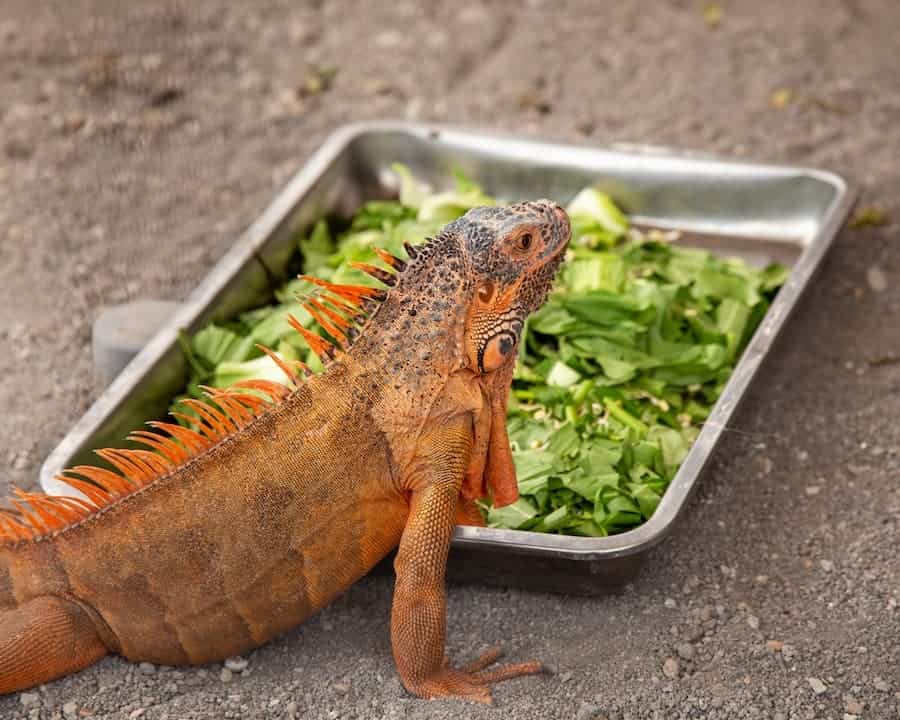
The Herbivore Diet – Iguanas are herbivores, meaning they only eat plants. They also need a diet rich in vitamin A, calcium, and fiber to stay healthy.
Iguanas typically eat greens, fruits, vegetables, which can be easily found at your local grocery store, and don’t break the bank!
Check out this guide on how to feed an iguana for more details.
4. Iguanas Are Quite Animals
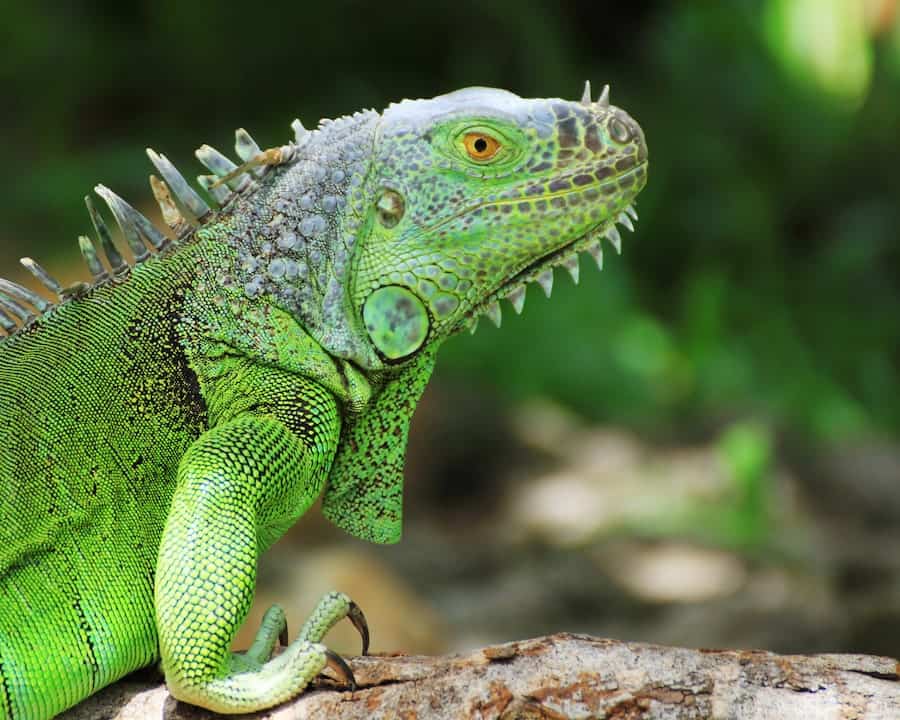
Everyone loves their dog and cat, but the truth is, they can sometimes drive us nuts with their barking and meowing.
One very great iguana attribute is how quiet they are. With the exception of the occasional hiss, iguanas do not produce any sounds.
Instead, they communicate via head bobbing, which you can read about in this post I wrote titled, “7 Reasons Why Your Iguana Bobs Its Head“, body posture, their dewlaps, and via changing color.
5 Iguanas Are NOT Nocturnal
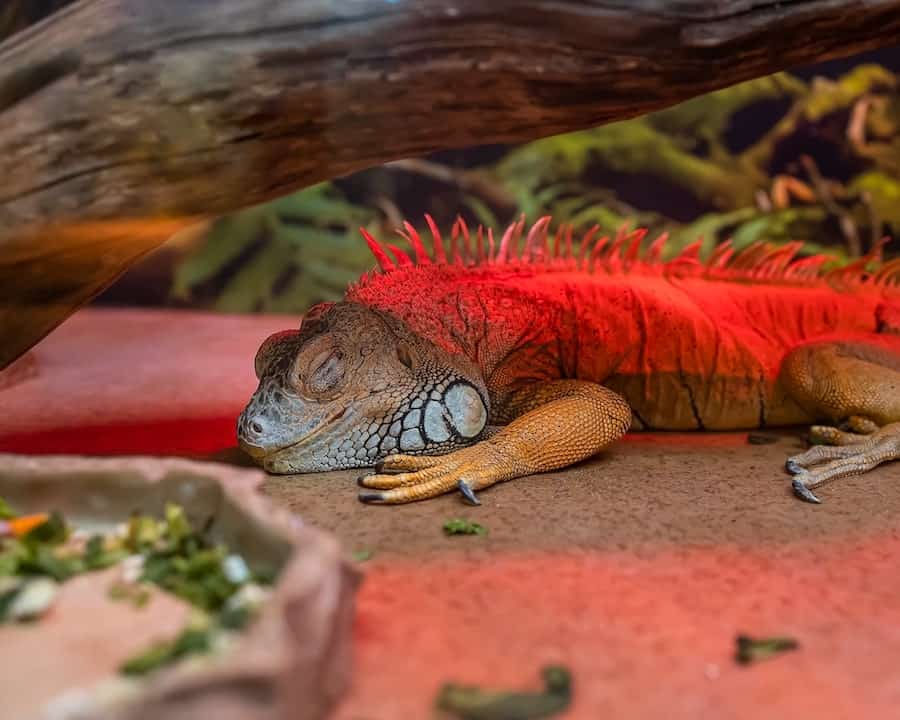
Like humans, iguanas are diurnal, meaning they’re active during the day and sleep at night.
Since iguanas sleep at night, you will have to turn off their UVB lights, and make certain accommodations.
If you haven’t already guessed it, you can train your iguana to sleep and wake up at the same hours as you, ensuring you get peaceful sleep and good rest.
For more info on iguanas’ circadian rhythm and other questions regarding their sleeping patterns, check out this post I wrote called, “Are Iguanas Nocturnal? The Answer May Surprise You.”
Here are 10 reasons why ZA Reptiles believes iguanas can make great pets for CERTAIN people.
Cons of Owning an Iguana
1. Iguanas Are Not Easily Tamed
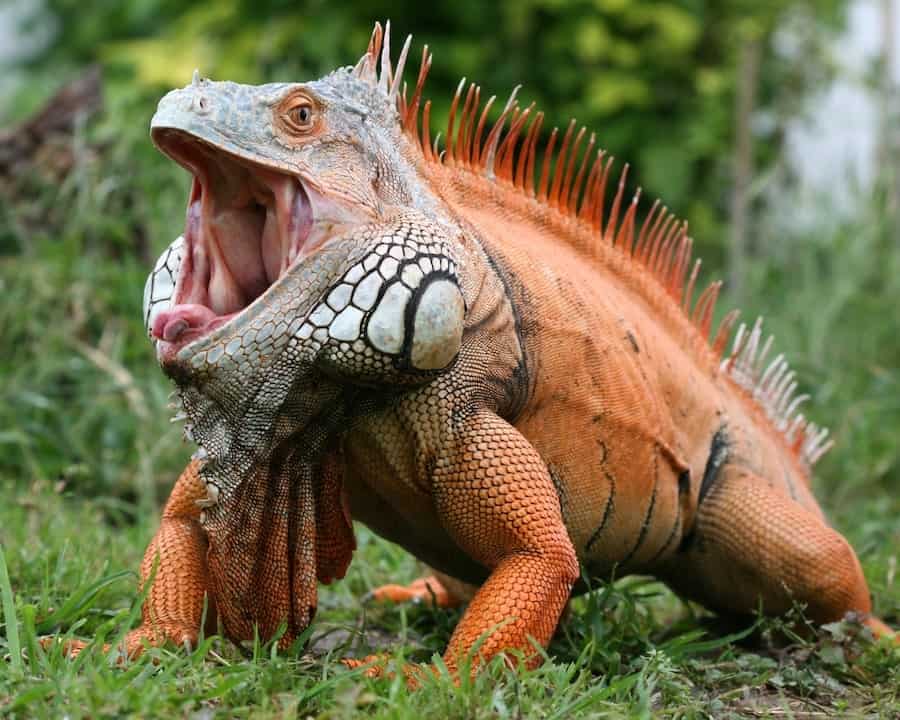
Like any pet, iguanas require training to help them get accustomed to their new home, which can be difficult at first. However, iguanas tend to be a bit more stubborn than your typical dog or house cat.
When an iguana is untamed you may notice signs of aggression and/or stress such as:
- Tail whipping
- Head bobbing
- Turning dark brown for prolonged periods
- Turning sideways to appear larger
- Opening its mouth
- Hissing
I recently wrote a post regarding the behavior of angry iguanas. To be redirected to that post, click the link, “7 Signs An Iguana is Mad: Ignore at Your Peril.”
A stubborn iguana can be difficult to train, requiring patience and a good deal of effort.
It may be months or even more than a year before your iguana begins to exhibit signs that it is docile.
2. Iguana Cages Require Constant Cleaning
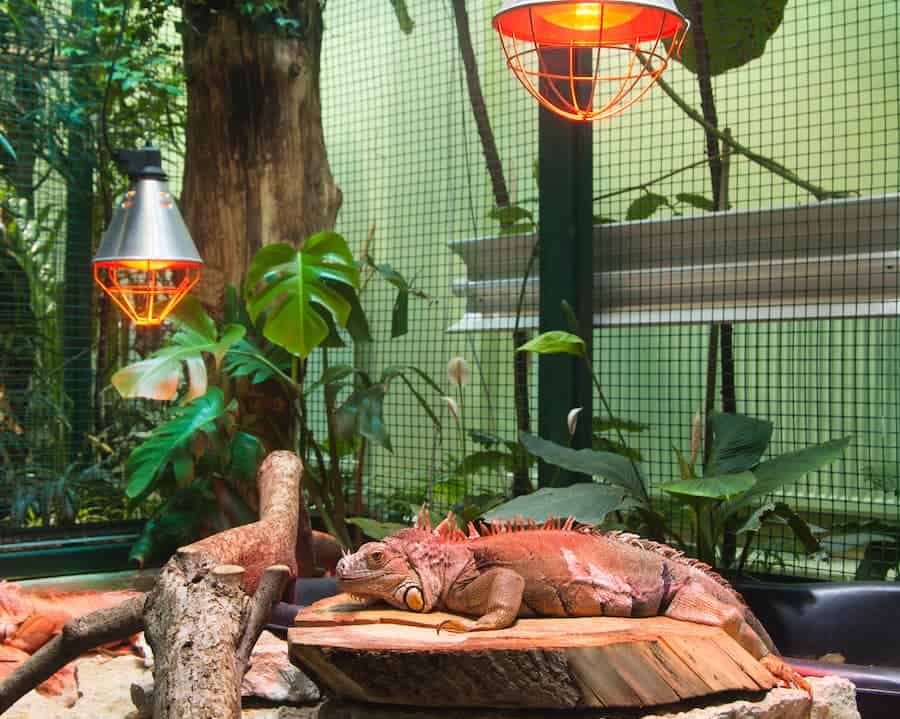
Iguanas can be messy pets, shedding their skin regularly and requiring frequent brushings.
It is important to immediately clean any droppings and/or skin that has been shed off, especially since harmful bacteria can be transmitted via iguana poop, but more on that a little later.
Having an excessive amount of poop in the cage can also make your pet to feel stress.
An iguana in the process of shedding its old skin is completely natural, and like many reptiles, will periodically shed their skin a few pieces at a time.
Keep an eye on the process, but know that it is a sign of a perfectly healthy iguana.
3. Iguanas Need Lots of Space
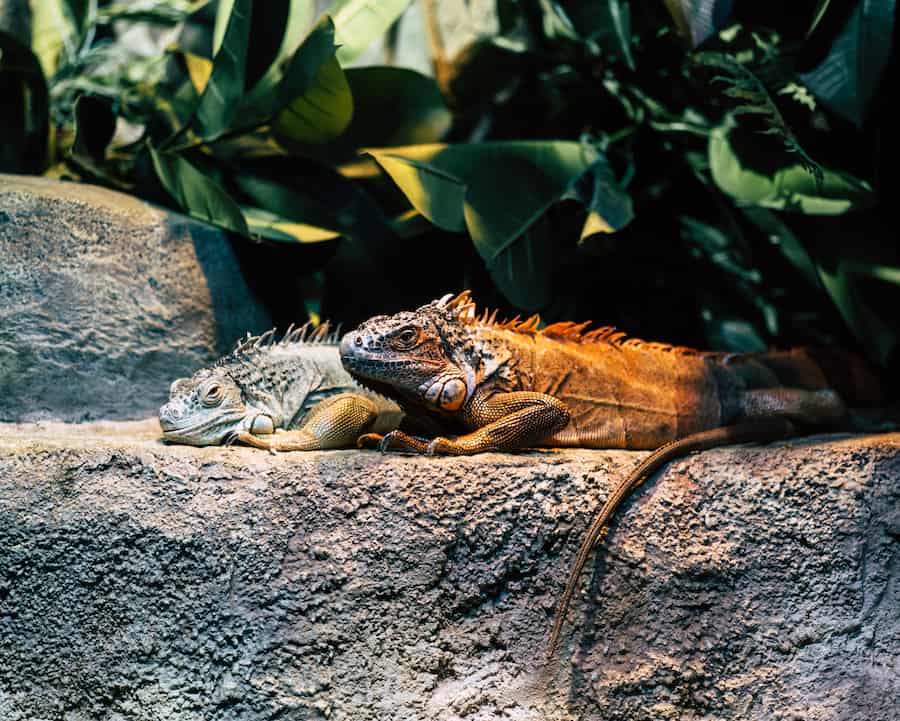
Iguanas are capable of growing into a formidable sized lizard, measuring 6-8ft if you include the tail.
Snout-vent-length (SVL) is the length of the iguana minus the tail. Iguana tails are usually twice the length of the SVL.
Hence, iguanas are more suitable for people with larger living spaces.
Owners can expect fast movements and jumping from their pet lizards, which is why you will need an enclosure that allows for both vertical and horizontal movements.
In his book, “Green Iguana, The Ultimate Owner’s Manual,” iguana expert James Hatfield provides an iguana cage blueprint. For a full grown adult, the cage should be at least 8 feet long, while the height should measure a minimum of 6’7″.
He also states that terrariums (same thing as aquariums), should only be used for hatchlings. An iguana measuring over 4 inches SVL requires a cage.
Keep in mind that your hatchling is going to grow extremely fast. In just over a year it’ll more than likely measure over 3 feet long, total length.
4. Iguanas Require Specific Living Conditions
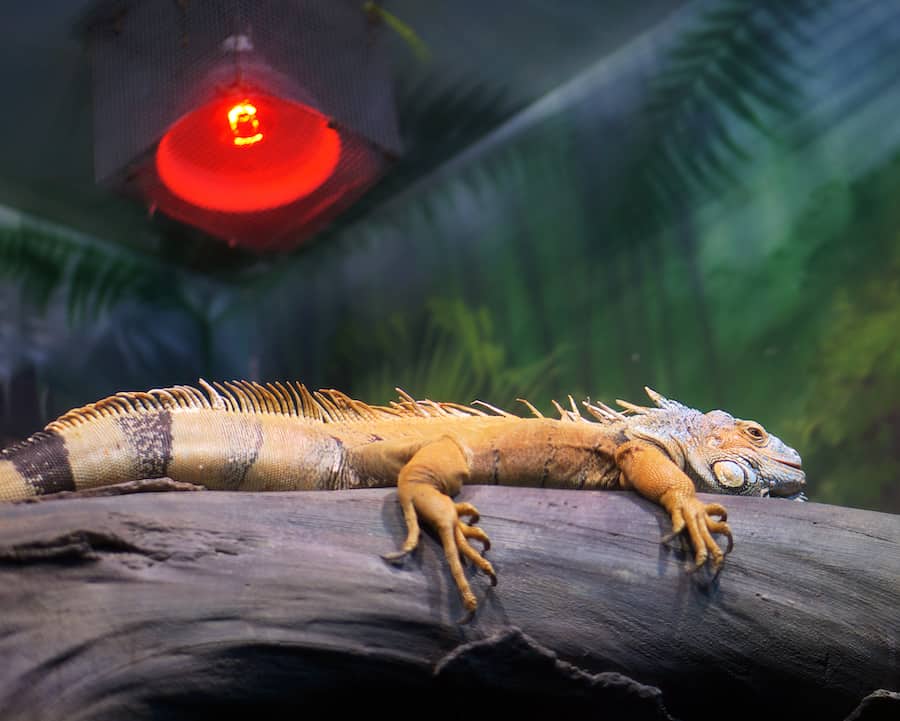
Iguanas require special cage lighting and temperature control within your home.
Owners should be prepared to provide UVB light, heat lamps and a humid environment.
These are non-negotiable requirements, as failing to provide them will result in your iguana getting sick with illnesses like Metabolic Bone Disease (MBD), and eventually dying if medical attention is not provided.
For more information on creating the ideal environment for your iguana – read here.
Additionally, you’ll need to provide plenty of hiding places and climbing surfaces, such as rocks, branches, and logs, for your iguana to feel safe in incase it perceives a threat, and to distress.
5. Iguanas Can Transmit Harmful Bacteria
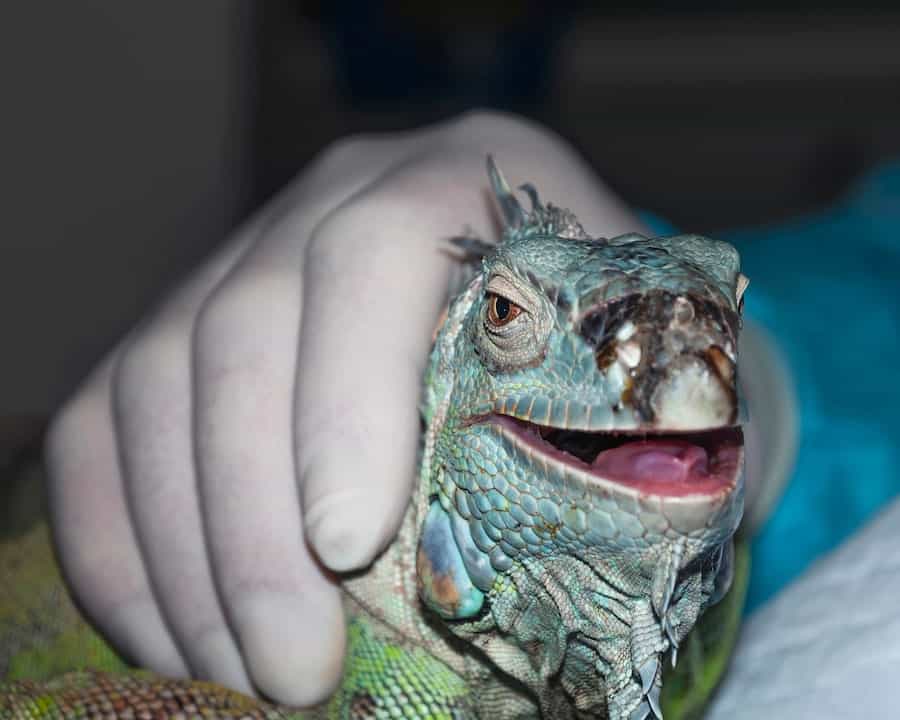
A healthy iguana requires significant care to ensure they are happy, healthy and live a full life. If you’re considering getting a pet iguana, here’s what you need to know about their potential health concerns.
Iguanas can spread Salmonella through feces or through contact with an infected reptile’s skin or mouth membranes.
So, it is important to not only keep yourself safe, but also those around you and especially the vulnerable populations like the elderly, pregnant women, and infants, by washing your hands before and handling your iguana.
6. Adopting Iguanas Requires High Up-Front Cost
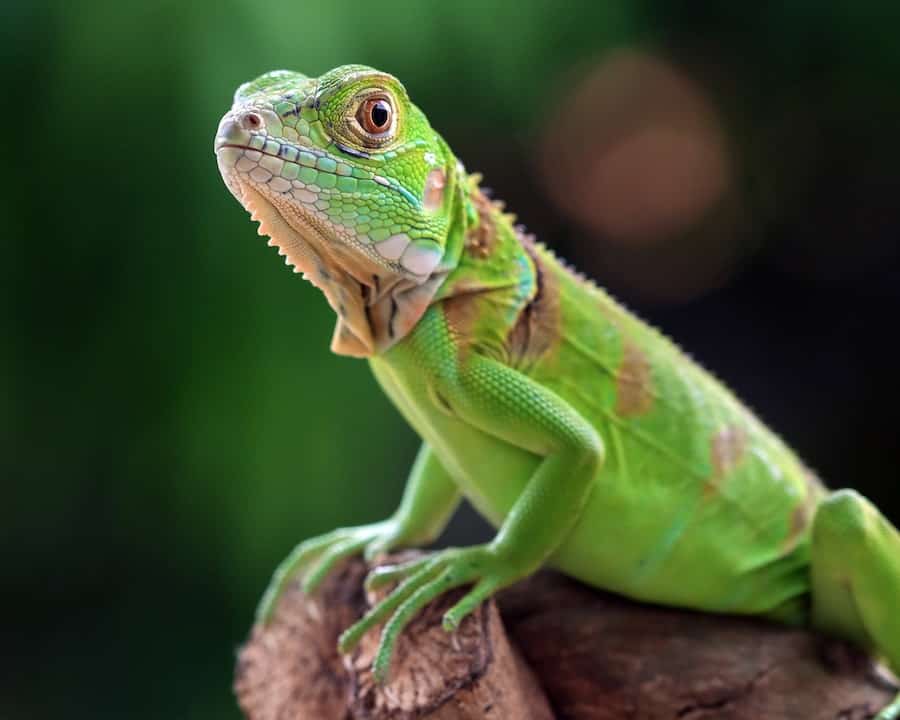
Iguanas Require a High Up-Front Cost – Owning an iguana can be costly; both in time and financially.
Before buying an iguana make sure you have a large enough budget and time allocated to maintaining all of their needs, especially since the cost of the iguana’s necessities may exceed that of the animal itself.
Here are a few things you can expect to purchase along with your new pet iguana.
- Cage
- UVB Bulb
- UVB Lamp
- Heat Lamp
- Heating Bulb
- Substrate
- Branches
- Humifier
- Temperature Gauge
- Humidifier Gauge
- Leafy Greens for food
- Food Bowl
- Water Bowl
- Vet checkup (to ensure your lizard is free from Salmonella and parasites)
All in all, you’re looking at somewhere in the ballpark of $700-$1000, as it highly depends on how big of a cage your purchase.
Wondering exactly how much it’ll cost you to own an iguana? Check out this post I wrote titled, “Cost of Owning an Iguana in 2022 & How to Save.”
Here are ten reasons why ZA reptiles believes iguanas do NOT make good pets for everyone.

